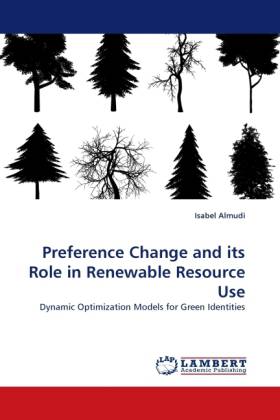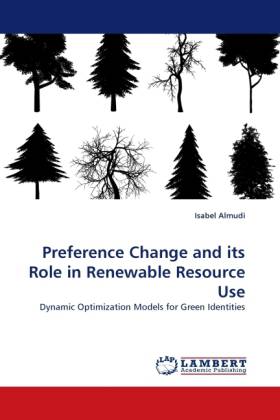
- Afhalen na 1 uur in een winkel met voorraad
- Gratis thuislevering in België vanaf € 30
- Ruim aanbod met 7 miljoen producten
- Afhalen na 1 uur in een winkel met voorraad
- Gratis thuislevering in België vanaf € 30
- Ruim aanbod met 7 miljoen producten
Zoeken
Preference Change and its Role in Renewable Resource Use
Dynamic Optimization Models for Green Identities
Isabel Almudi
Paperback | Engels
€ 58,45
+ 116 punten
Omschrijving
Traditionally, within the optimizing utilitarian framework used for the development of works incorporating the question of natural resources into their analysis, social preferences have been dealt with from two different perspectives. The first one regards final consumption as the only source of satisfaction. The second one, considers an intrinsic evaluation of natural resources as an additional element for personal well-being. However, despite the theoretical advances of this last strand of the literature, we believe that such a framework is insufficient to analyze how certain non-economic factors can affect the environment. This book offers an attempt to take these non-economic factors into account.
Specificaties
Betrokkenen
- Auteur(s):
- Uitgeverij:
Inhoud
- Aantal bladzijden:
- 160
- Taal:
- Engels
Eigenschappen
- Productcode (EAN):
- 9783843379441
- Uitvoering:
- Paperback
- Afmetingen:
- 150 mm x 220 mm
- Gewicht:
- 257 g

Alleen bij Standaard Boekhandel
+ 116 punten op je klantenkaart van Standaard Boekhandel
Beoordelingen
We publiceren alleen reviews die voldoen aan de voorwaarden voor reviews. Bekijk onze voorwaarden voor reviews.











